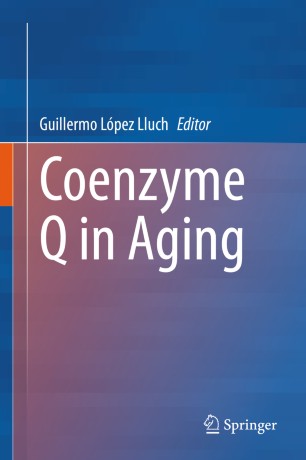

Most ebook files are in PDF format, so you can easily read them using various software such as Foxit Reader or directly on the Google Chrome browser.
Some ebook files are released by publishers in other formats such as .awz, .mobi, .epub, .fb2, etc. You may need to install specific software to read these formats on mobile/PC, such as Calibre.
Please read the tutorial at this link: https://ebookbell.com/faq
We offer FREE conversion to the popular formats you request; however, this may take some time. Therefore, right after payment, please email us, and we will try to provide the service as quickly as possible.
For some exceptional file formats or broken links (if any), please refrain from opening any disputes. Instead, email us first, and we will try to assist within a maximum of 6 hours.
EbookBell Team

0.0
0 reviewsThis book offers a comprehensive exploration of research on the essential relationship of the coenzyme Q10 and the process of aging in living organisms. CoQ10 is an important factor in two main aspects of cell physiology: bioenergetics and antioxidant protection. While primary deficiency of CoQ10 is associated with severe and lethal disease, secondary deficiency can be associated with the progression of mitochondrial dysfunction linked to the lessening of biological activities during aging.
The book is organized in four sections. The first offers an overview of the function of CoQ10, highlighting the two main functions of CoQ10 in cells: its essential role as electron transport chain member in mitochondria, and the protection of cell membranes against oxidation as one of the main endogenous-synthesized antioxidants.
The second section covers research on Coenzyme 10. Topics include studies involving invertebrate models, mammal studies and the influence of CoQonlongevity. Also covered is research involving the role of CoQ in senescence-accelerated mice.
Section three examines the effects of reduced CoQ in human aging, as evident in mitochondrial dysfunction, metabolic syndrome, neurodegenerative disorders, immunosenescence and fertility and reproduction.The final section, Prolongevity effectors and Coenzyme Q, explores research into slowing or stopping the aging process. Coverage includes strategies including calorie restriction, and modulation of CoQ10 levels by induction of synthesis or by supplementation.
Coenzyme Q in Aging benefits a broad readership of researchers, clinicians, educators and students interested in the biochemical and physiological effects of coenzyme Q and the importance of this molecule in aging process.